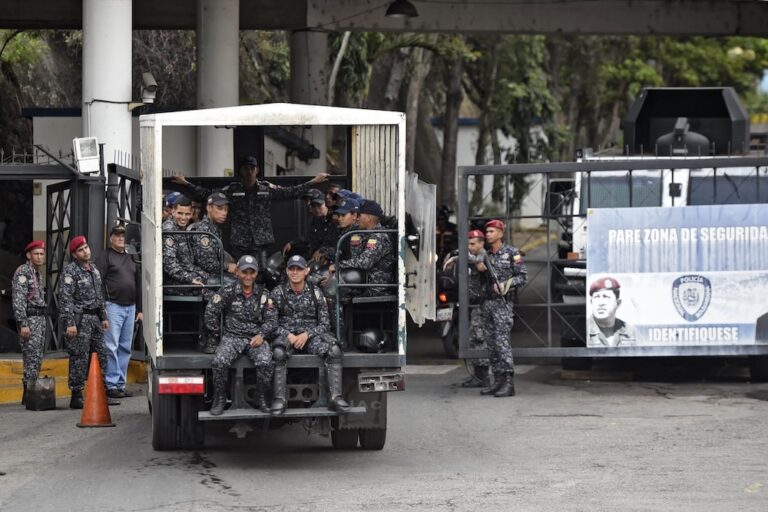(IAPA/IFEX) – The following is an 8 November 2006 IAPA press release: Action against TV in Venezuela brings IAPA protest MIAMI, Florida (November 8, 2006) – The Inter American Press Association (IAPA) today reacted angrily to what it called an act of censorship by the Venezuelan authorities against privately-owned television stations in preventing them from […]
(IAPA/IFEX) – The following is an 8 November 2006 IAPA press release:
Action against TV in Venezuela brings IAPA protest
MIAMI, Florida (November 8, 2006) – The Inter American Press Association (IAPA) today reacted angrily to what it called an act of censorship by the Venezuelan authorities against privately-owned television stations in preventing them from being able to conduct live broadcasts.
It was referring to a complaint yesterday (November 7) by Alberto Federico Ravell, general manager of Globovisión, that an officer of Venezuela’s National Guard had denied engineers from the TV station access to its microwave transmitters located on the El Avila mountain overlooking Caracas, which they wanted to adjust to enable the station to transmit live broadcasts.
According to Globovisión’s legal counsel the engineers were told that they needed to give 24 hours’ notice of any intention to realign the transmitters – a requirement that the station had not previously formally heard of.
“If this absurd requirement to be able to provide information live to the people were to be applied, it would be added to the already existing court rulings that have imposed prior censorship of news reports and the Law on Social Responsibility in Radio and Television, which empowers the National Telecommunications Commission to sanction such media, even to the point of shutting them down permanently,” commented Gonzalo Marroquín, chairman of the IAPA’s Committee on Freedom of the Press and Information.
The incident came only a few days after Venezuelan President Hugo Chávez repeated a threat to cancel the broadcast licenses of privately-owned television stations next year.
A senior National Guard official denied that commercial television stations had been prevented from broadcasting live. It was merely a “misunderstanding,” Brigadier General Wilmer Márquez Martínez said. The intention, he said, was to take “control measures” to protect the equipment and personnel, “never to prevent their use.”
“We trust that, as the National Guard officer said, this was a misunderstanding and not another restriction of the exercise of free speech and press freedom and the people’s right to know,” declared Marroquín, editor of the Guatemala City, Guatemala, newspaper Prensa Libre.
According to the local press, yesterday’s action affected all commercial television channels and the state-owned Venezolana de Televisión.
Marroquín said action of this kind violates the fifth principle of the IAPA-sponsored Declaration of Chapultepec, which states that “prior censorship, restrictions on the circulation of the media or dissemination of their reports, forced publication of information, the imposition of obstacles to the free flow of news, and restrictions on the activities and movements of journalists directly contradict freedom of the press.” He said it also ignores the American Convention on Human Rights’ Article 13 on freedom of thought and expression.


